Schizophrenia is a chronic mental health condition that affects a person’s ability to differentiate between what is real and what is not, perceive their surroundings, manage their thoughts, and communicate with others.
According to the Diagnostic and Statistical Manual of Mental Disorders, Fifth Edition (DSM-5), there are five key symptoms associated with schizophrenia. A person must display two or more of these symptoms for a significant amount of time within a one-month period to meet a schizophrenia diagnosis:
- Delusions: Believing things despite evidence that proves otherwise
- Hallucinations: Seeing or hearing things that are not real
- Grossly disorganized behavior: Not reacting to one’s environment
- Disorganized thinking or speech: Mumbling or speaking incoherently
- Negative symptoms: Expressing no emotions, showing little interest in participating in work or social activities, and speaking in a flat voice
East Tennessee Behavioral Health provides an inpatient program for adolescents, adults, and senior adults. We also offer a partial hospitalization program (PHP) for adults and senior adults. These programs are designed to help people who are struggling with schizophrenia heal from the impact this disorder has had on their life.
Signs & Symptoms of Schizophrenia
If you are experiencing symptoms of schizophrenia, you may have trouble carrying out your day-to-day activities. A person who displays any signs or symptoms of schizophrenia may be in crisis and can benefit from the help of a professional.
Common signs and symptoms of schizophrenia include:
- Seeing, hearing, or responding to things that are not there
- Believing things that have no basis in reality
- Displaying a lack of emotional or facial expressions
- Speaking incoherently
- Acting unpredictably
- Jumping between topics during conversation
- Staying still for long periods of time
- Failing to engage in self-care
- Struggling to concentrate
- Having trouble following through with things
When a person receives quality care at a reputable schizophrenia treatment place, they can learn to manage their schizophrenia symptoms.
Schizophrenia Statistics
The National Institute of Mental Health (NIMH) has reported the following statistics on schizophrenia:
- People who struggle with schizophrenia are at an increased risk for premature death, with an average of 28.5 years of life lost compared with those who do not suffer from the condition.
- About 4.9% of people who live with schizophrenia die by suicide.
- About half of all people who suffer from schizophrenia have co-occurring mental health disorders.
Potential Effects of Schizophrenia
Without professional support, people who are struggling with schizophrenia can have trouble functioning. Depending on a person’s specific situation, effects of schizophrenia can include:
- Strained or ruined relationships with loved ones
- Physical injury due to aggressive or reckless behaviors
- Health problems due to poor self-care
- Chronic unemployment and job loss
- Diminished performance in school
- Homelessness
- Isolation
- Suicidal thoughts
- Onset or worsening of another mental health condition
- Development of a substance use disorder
Schizophrenia affects everyone differently. With appropriate care, you can lessen your risk for continued negative effects of schizophrenia and live a happier, more fulfilling life.
Therapies Used in Schizophrenia Treatment
Each person who comes to East Tennessee Behavioral Health for schizophrenia treatment follows a treatment plan that is tailor-made for them.
Your treatment plan may include:
- Basic medical care
- Medication management services
- Detoxification services for specific co-occurring addictions
- Individual therapy
- Family therapy
- Group therapy
- Recreational activities
We use a number of evidence-based treatment methods that can help you build a foundation for long-term healing. These can include cognitive behavioral therapy (CBT), dialectical behavior therapy (DBT), and motivational enhancement.
The Benefits of Schizophrenia Treatment
Left untreated, schizophrenia can prevent people who have the disorder from fully engaging in a healthy and productive lifestyle. But when they get the support they need at a schizophrenia treatment place, they can learn the skills necessary to regain control of their actions and thoughts.
Benefits of receiving schizophrenia treatment at East Tennessee Behavioral Health may include:
- Working closely with a team of experienced and compassionate professionals
- Developing the skills necessary to help you manage your schizophrenia symptoms
- Getting treatment in a serene environment
- Following a personalized treatment plan that incorporates therapeutic interventions that are best suited to meet your unique needs
- Understanding your schizophrenia diagnosis, types of treatment available, and the process of maintaining your health after your time in treatment comes to an end
Seeking treatment for schizophrenia can feel overwhelming, but many people who enter schizophrenia treatment leave with healthier coping skills and the tools they need to support their progress toward improved health.
This content was written on behalf of and reviewed by the clinical staff at East Tennessee Behavioral Health.















